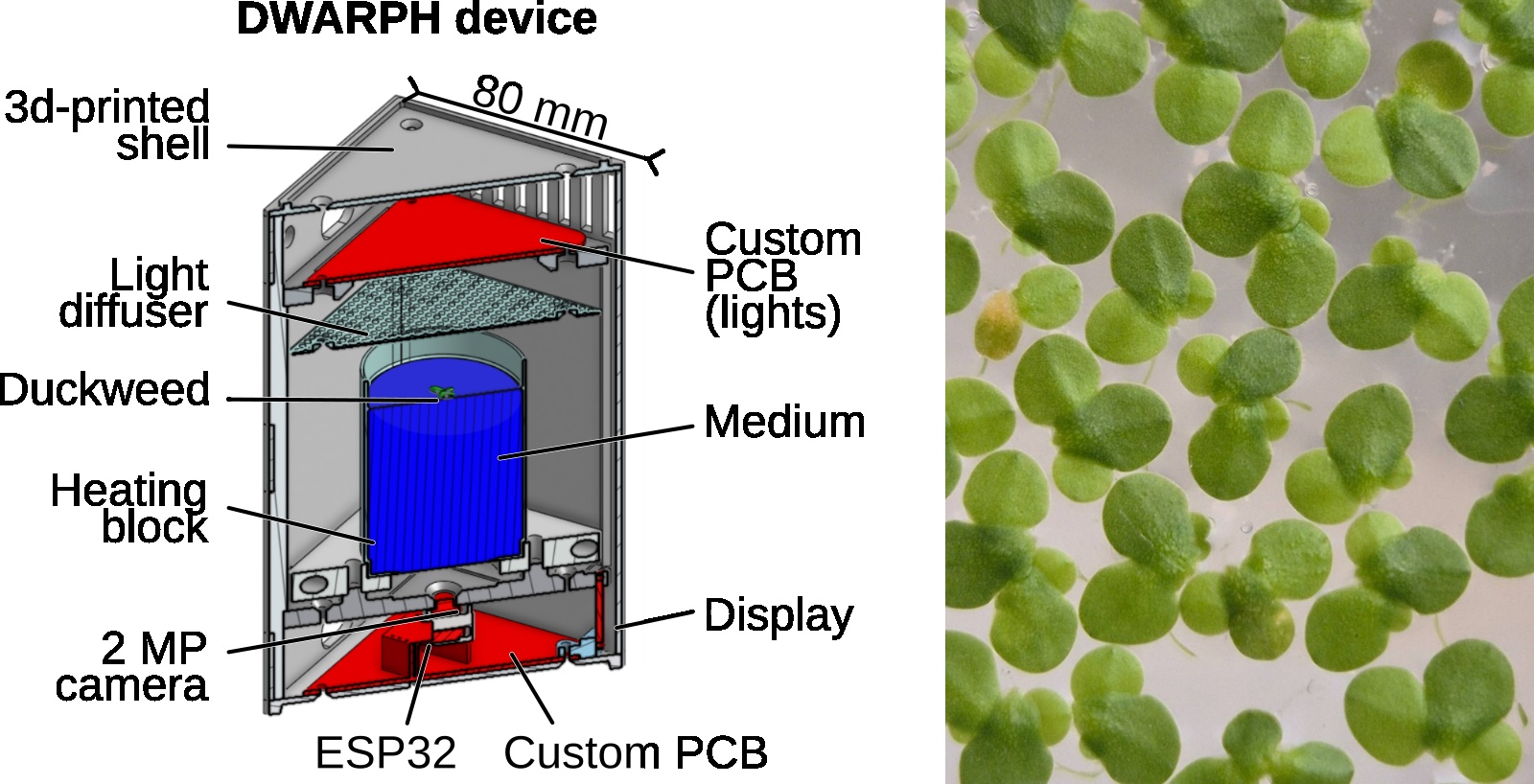PhD in Plant Phenomics: AI and Robotics for High-Throughput Environmental Response Mapping

Open PhD Position
Please also see the official posting. Deadline: 15 Nov 2024.
Project Summary
We are seeking a highly motivated PhD student to work on an exciting multidisciplinary project funded by the Danish Council for Independent Research (Sapere Aude), aiming to develop cutting-edge tools to understand complex plant responses to environmental variables.
Project Description
Context
Plants live in complex environments, responding to factors such as light, temperature, and nutrients, which affect their growth and survival. Each plant responds differently to these factors, and understanding these reactions is key to studying their ability to adapt and thrive in various conditions. This project aims to take a groundbreaking approach by not just studying plants in isolated environments, but by exploring how they grow across a multidimentional range of environmental conditions in real-time.
About The Project
The project focuses on characterising “response surfaces” in the small, fast-growing plant species Lemna gibba (duckweed), using high-throughput phenotyping and advanced AI tools. The core of the research involves: • Development and validation of DWARPH (DuckWeed Automatic Robot for Phenomics), a scalable, miniature growth chamber with automated real-time phenotyping. • Application of deep learning and optimisation theory to iteratively explore how environmental factors influence plant growth. • Comparative analysis of genetic determinants of plant plasticity and ecological niche modelling across multiple L. gibba ecotypes. This research will explore exciting questions about plant adaptation, response surface modeling, and experimental metaphenomics, providing valuable insights into plant biology and the future of sustainable agriculture.
Research Group
You will join the dynamic Digital Approaches for Resilient and Sustainable Agriculture (DARSA) group, at the Center for Quantitative Genetics and Genomics (QGG). The group and center foster a dynamic, inclusive and multidisciplinary environment. Your research will take place at Aarhus University, a prestigious institution located in a vibrant student-friendly city. This project will be conducted with local (the Aquatic Biology Section) and international (Dr. Ryan Sartor) collaborators.
Selection Process
Candidates will be evaluated based on their CV, motivation statement, and reference letters. Shortlisted candidates will be invited for an interview (online or in person). The top candidate will be offered the position.
Why Apply?
- Be at the forefront of integrating technology and ecology
- Lead original fundamental research on unknown aspects of plant biology
- Work in a collaborative and supportive research environment
- Gain experience with cutting-edge technologies applied to research
Applicant’s Profile and Eligibility
The applicant should:
- Have completed a Master’s degree (before January 2025) in engineering or experimental science (e.g., ecology, biology, experimental physics, etc.)
- Have experience in developing advanced custom hardware (PCB, 3d printing, CNC, etc.)
- Have advanced mathematical and programming skills (in particular, experience working with scientific languages (e.g. R and Python)
- Be familiar with image processing, imaging techniques
- Have a strong interest and motivation to study plant biology and ecology
- Possess advanced collaborative and interpersonal skills
- Be fluent in English (written and spoken)
Supervision
Our primary goal is for our students to succeed by helping them to develop and achieve their career goals. As such, we support and help students in taking the project in their own direction, within the original scope, and encourage flexibility as well as new viewpoints as the project moves forward. The successful applicant should expect a weekly meeting with Quentin Geissmann, their direct supervisor. Students are encouraged to collaborate within and outside of the group, and will be given (funded) opportunities to present their research at international conferences. We also consider it the supervisor’s role to ensure students feel safe and included in their work environment.
Location and Facilities
The research takes place in the QGG at Aarhus University (AU). AU is a world-class university (the largest in Denmark), with outstanding opportunities for collaboration on this particular project. For this project, we have access to various High-Performance Computing platforms and workstations, including GPUs. In addition to these computational resources, we have a workshop suitable to prototype hardware (cameras, edge computing, …) in-house, and have access to larger infrastructure through our collaborations with the engineering department. Aarhus itself is a vibrant city with an active cultural life, a dynamic student community and a very high standard of living.
Administrative Considerations
Timeline
The application deadline is Nov 15th 2024. The expected start date is January 1st, 2025, but this is somewhat flexible (as it may depend on personal situations, getting a visa, etc). The total duration of the PhD is three years.
Stipend
The PhD salaries are set at the university level and defined in this table – the exact numbers depend on previous post-graduate work experience, and the taxation system is somewhat complicated, but expect to have a net salary of approximately 18,000 DKK (≈2,400 Euro) per month. Overall, Denmark is one of the countries where students earn the most.
Application Process
In order to ensure a fair assessment of all applicants, the graduate school implements an official procedure. Please refer to the formal offer on the university’s website, which will direct you to an online form. Candidates will be evaluated based on their CV, motivation statement, and reference letters. Shortlisted candidates will be invited for an interview (online or in person). The top candidate will be offered the position.
Questions
Meanwhile, do not hesitate to contact us if you have questions, or want to discuss your interest, ideas… When doing so, please enclose a CV and a brief description of your motivation.